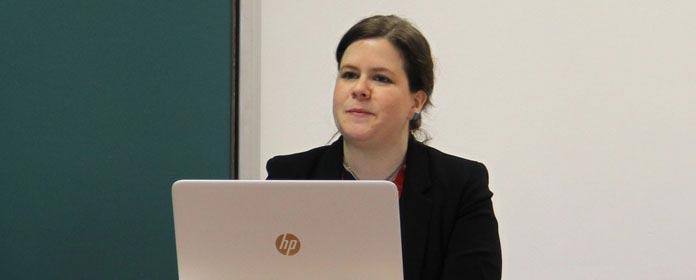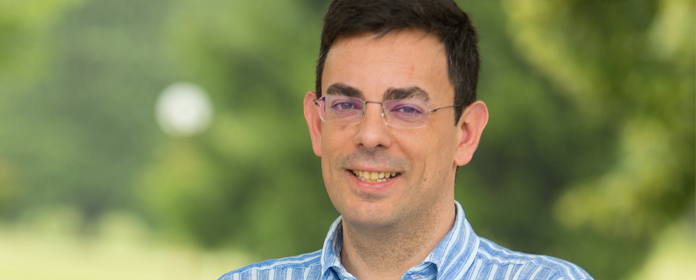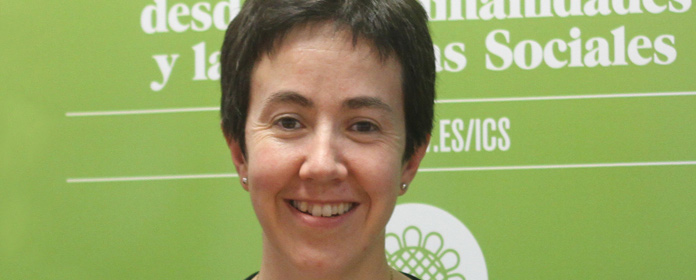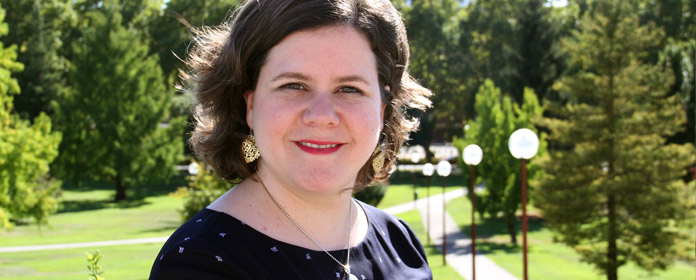#ReframeCovid: an initiative to move away from the linguistic framework war about the coronavirus to a more cohesive one.
Inés Olza, researcher at the ICS of the University of Navarra, is one of its promoters, and experts from various Spanish and foreign centers have joined the project.

PHOTO: Elena Beltrán
"Since the beginning of the coronavirus crisis we are hearing many metaphors of war and combat in political discourses, media and, in general, in all spheres of society. They can be replaced by less violent ones, which help more and better to unite a population that has already proven to be manager". This is what Inés Olza, researcher at the Institute for Culture and Society (ICS) of the University of Navarra.
The expert is one of the promoters of the #ReframeCovid initiative, which seeks to overcome the warlike linguistic framework about the coronavirus and bet on a more inspiring one, which generates more adherence to norms such as confinement.
Several colleagues read a reflection of theirs on Twitter during the first week of confinement in Spain and Paula Pérez Sobrino, from the Polytechnic University of Madrid, created the hashtag. They were seconded almost in real time by Iraide Ibarretxe (University of Zaragoza), Laura Filardo (University of Valladolid), Elena Semino and Veronika Koller (Lancaster University). The latter opened a collaborative paper to create a corpus of metaphors about the coronavirus.
Thus, they have detected examples of rhetorical figures related to sports ("don't play with the coronavirus", "the match with Covid-19 continues"), the sea ("row together", "wave of solidarity"), or nature ("avalanche of cooperation and goodwill"), among other areas.
Olza also recommends using spatial metaphors: "our houses and cities will be free of viruses" instead of "winning the battle against the virus"; or "we must recover our health spaces together" instead of "we must defeat the enemy together".
Convincing citizens, more necessary than everThis proposal follows the line of research by Elena Semino, who gave a seminar in 2018 at the ICS on the extent to which the use of metaphors contributes to living difficult experiences, such as cancer. "In the case of coronavirus, there are also patients who are not going to manage to recover, and both they and their families may feel that they have failed or that they have lost if their treatment does not work," says the ICS researcher.
Another aspect that Inés Olza highlights in the public speeches about the coronavirus is that "there is something implicit that is not often heard from the authorities: the general impact of individual action". Thus, she points out that expressions such as "discipline social", "collective thinking and effort", "solidarity"... have been repeated.
"It has to do with the idea of agency that is present in many sociological programs of study : who has the capacity or responsibility to do something," he notes. "Governments usually insist on the power of institutions, but in this case they know they need partnership from everyone. To some extent it is an exercise in humility on the part of politicians, who know that, more than ever, they have to convince us."
Inés Olza is principal investigator of project MultiNeg, framed in 'Emotional culture and identity' and financed by the Ministry of Science and Innovation and FEDER/EU funds. In it she studies disagreement in interaction, an aspect on which she is reflecting these days: "We are facing a status in which, at first written request, everyone suspends disagreements and leaves aside the agendas that confront them. The majority position among politicians is that this crisis does not understand ideologies and that responsibility must be prioritized".
Some media have echoed #ReframeCovid.




